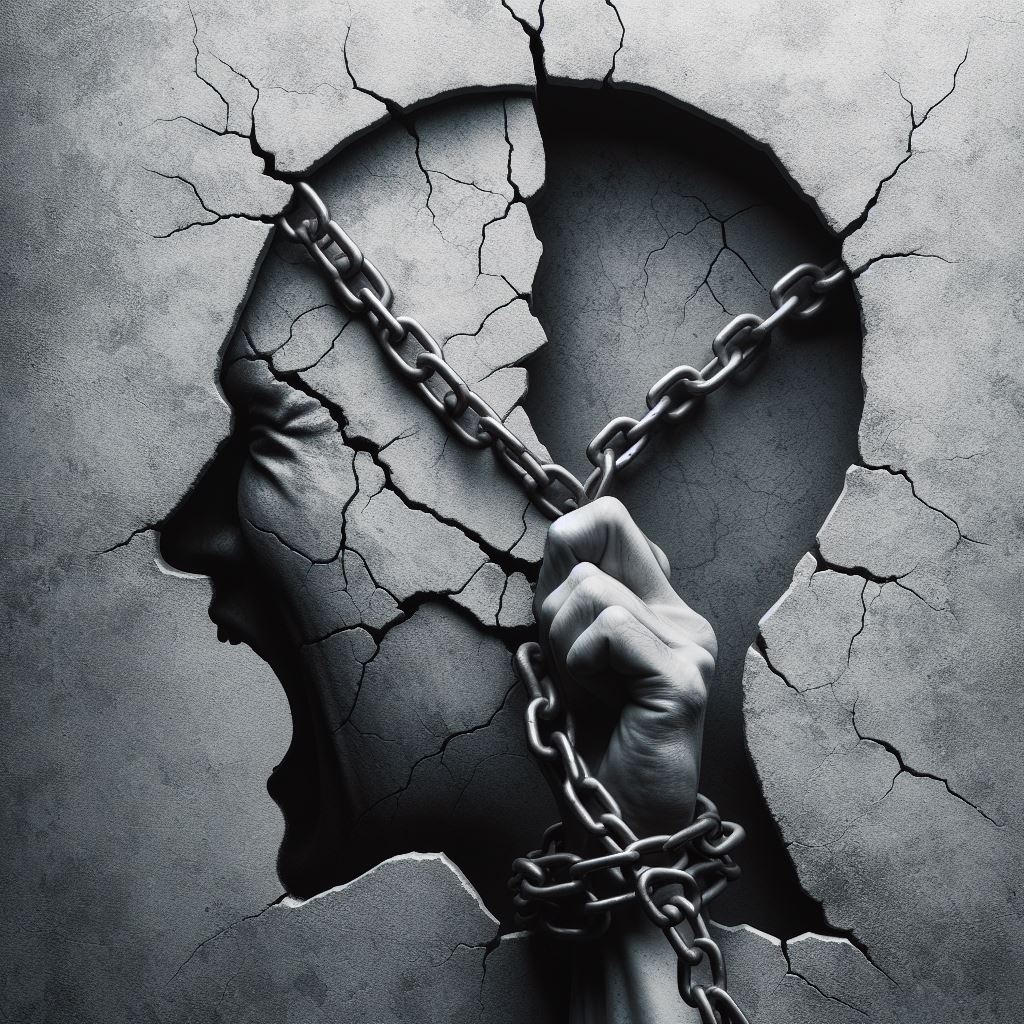Our emotions have a huge amount of power over our choices and actions – and we can either become a master or a slave to them.
When you’re a slave to your emotions, they can motivate you to do things that are really negative and destructive. For example, feeling angry while in a heated argument and then retaliating with insults or aggression.
And when you’re a master of your emotions, they can motivate you to do things that are really positive and constructive. For example, feeling inspired by someone and then using that as fuel to do something creative, such as write, paint, or make music.
One central concept in emotional intelligence is finding a balance between our rational and thinking mind vs. our impulsive and feeling mind. When we learn how to use both of these appropriately, then we have mastered our emotions, and not become enslaved to them.
Here are 5 warning signs that you are becoming a slave to your emotions. If you find that these apply to you, then it may be time to make a change in the way you approach your emotions.
You react without thinking
One of the biggest signs that you’re a slave to your emotions is if you find yourself reacting to a lot of the situations in your life without thinking at all.
In psychology, there is a term known as amygdala hijack which refers to the phenomenon when the emotional parts of our brain have completely taken over the thinking parts of our brain.
This is when you are so overwhelmed with emotions that you aren’t even capable of being reasonable.
Have you ever seen two people really arguing with one another at the top of their lungs and flailing their arms? And their voices begin to change dramatically – as if it is someone else speaking?
That’s just one example of people becoming completely hijacked by their emotions – it can really bring out the worst side of you when it happens – and it’s an ugly sight to behold.
It feels right in the moment, but wrong afterwards
When you’re caught up in the moment, your instincts feel right even when they are wrong.
It always feels like a good idea at the time to snap back at someone, or insult them, or punch them in the face, but that short high is often followed by a long comedown.
When we have emotional outbursts, we tend to regret them soon after. We feel really crappy for what we did, and we wish we could go back in time to take it back. But we can’t.
Extreme levels of regret is often a sign that your emotions are running the show in a certain area of your life. You don’t have good control over them, thus you are frequently acting in ways that let yourself down.
Your actions hurt yourself and others
When your emotions get the best of you, it can often end up hurting both yourself and others.
When people are a slave to their emotions they are rarely pleasant to be around – you never quite know what mood they will become engulfed in next (sadness, anger, jealousy, or fear) and you never quite know how they may react to those emotions while around you.
Often an emotional slave ends up acting in ways that spread their negative emotions to other like a virus. They walk into a room feeling gloomy and upset, and before you know it everyone else in the room is feeling the same way.
When someone is a slave to their emotions, even their positive moods can become out-of-hand and destructive. Sometimes they become so caught up in their joy, spontaneity, and elation that they end up acting in risky and careless ways that scare people or turn people off.
Emotional intelligence is just as much about knowing how to manage your emotions around others as it is about managing your emotions in yourself.
You ruminate at night and can’t sleep
Another sign that you’re a slave to your emotions is if you spend a lot of time at night thinking excessively and not being able to get much sleep.
Staying up at night ruminating is often a byproduct of regret. It could be about how we expressed a particular emotion in a particular situation, or even how we didn’t express a particular emotion in a particular situation.
The other side of being an emotional slave is not knowing how to express yourself at all and just suppressing your emotions.
So if you find yourself staying up many nights thinking about how you really need to talk to your boss, coworker, friend, family, or whomever, it could be a sign that you need to learn how to speak your mind more often (in a healthy and polite way).
People who are masters of their emotions aren’t completely stoic or emotionless – they know how to talk about their emotions and express them in a constructive way that’s appropriate.
Without this healthy expression, you’re going to find yourself dealing with a lot of emotional residue at the end of the day.
You keep repeating the cycle
Everything described above happens to everyone to some degree. No one is perfect and we all have moments when our emotions bring out the worst in us.
Mastering your emotions doesn’t necessarily mean you never slip up, but it does mean that you learn from those mistakes and you don’t keep repeating the same cycle over and over again.
When you start making active changes in improving how you responds to your emotions however, those outbursts tend to become less frequent and less intense.
After reading through this article, how do you feel about your own emotions and well-being? What emotions do you need to work on more? What situations do you need to learn how to respond to differently?
Enter your email to stay updated on new articles in self improvement:

